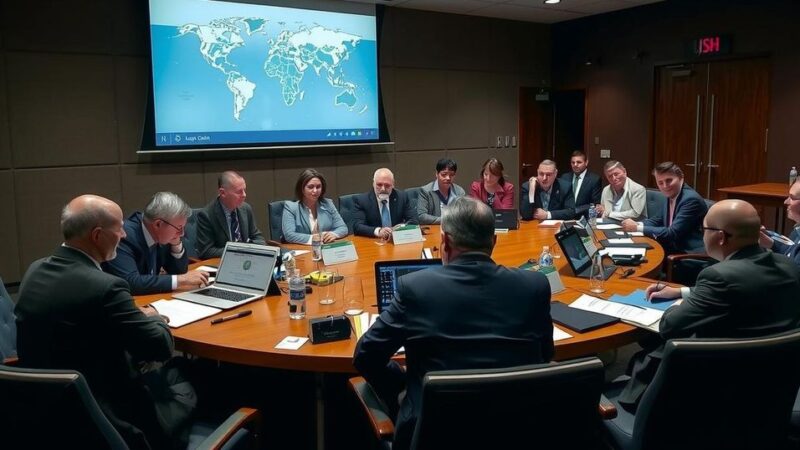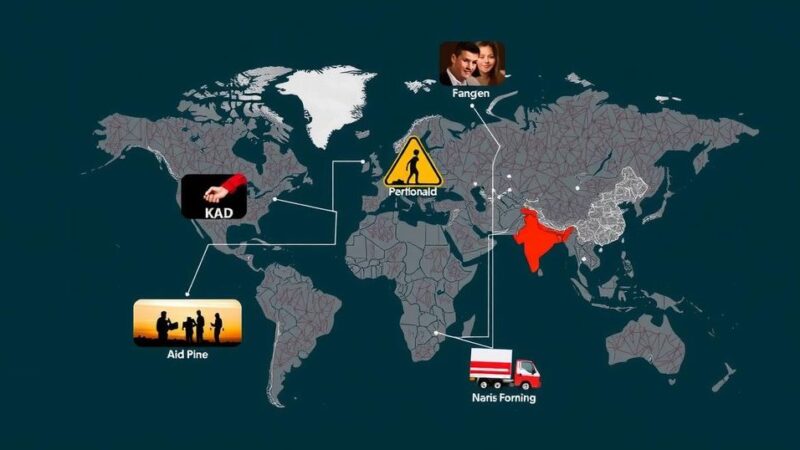Jordan, represented by Deputy Prime Minister and Foreign Minister Ayman Safadi, reaffirmed its support for Lebanon during discussions with Egyptian officials in Cairo. This meeting focused on the need for coordinated actions to address Israeli aggression, support humanitarian efforts, and uphold Lebanon’s sovereignty. Safadi delivered a letter from King Abdullah to President El Sisi, detailing outcomes from his recent visit to Lebanon. Both nations expressed a unified front against forced displacement of Palestinians and acknowledged the risks of broader regional conflict due to ongoing hostilities.
On October 9, 2024, Jordan reaffirmed its commitment to support Lebanon through diplomatic interactions underscored by Deputy Prime Minister and Foreign Minister Ayman Safadi’s visit to Cairo. During this visit, Safadi delivered a letter from His Majesty King Abdullah to Egyptian President Abdel Fattah El Sisi, focusing on the need for ongoing discussions regarding regional developments. The letter highlighted the outcomes of Safadi’s solidarity visit to Lebanon, where he engaged with prominent Lebanese officials including Prime Minister Najib Mikati and Parliament Speaker Nabih Berri. In extensive negotiations with Egyptian Foreign Minister Badr Abdel Aty, both parties stressed the necessity for collaborative efforts to cease Israeli hostilities in Gaza and address the pressing humanitarian crisis affecting the region. The discussions called for immediate measures to ensure a ceasefire in Lebanon and the implementation of United Nations Security Council Resolution 1701. They underscored the urgency of humanitarian assistance, especially as Lebanon faces over 1.2 million displaced individuals due to the ongoing conflict. At a joint press conference, Safadi emphasized the close diplomatic alignment between Jordan and Egypt on pivotal regional matters, particularly concerning the Palestinian cause. He asserted that actions leading to the forced displacement of Palestinians would not be tolerated by either nation. Both Safadi and Abdel Aty acknowledged that continued aggression in Gaza risks igniting broader regional conflict. Safadi reaffirmed Jordan’s unwavering support for Lebanon’s sovereignty and the right of its citizenry to elect a president without external influence. He condemned both Israeli attacks on Lebanese territories and their implications for civilian safety, clarifying that Jordan would not become embroiled in conflicts instigated by external powers, focusing instead on national security and the welfare of its citizens.
The relationship between Jordan and Lebanon has historically been characterized by mutual support, particularly during periods of regional instability. The escalating tensions in Gaza and Lebanon have prompted both Jordan and Egypt to engage actively in diplomatic efforts aimed at achieving ceasefire and addressing humanitarian needs. The involvement of regional powers is critical in navigating the complexities of the Israeli-Palestinian conflict and its broader implications on Middle Eastern stability. Jordan’s historical role as a custodian of Islamic sites in Jerusalem further influences its comprehensive approach to fostering peace in the region.
In conclusion, the joint efforts of Jordan and Egypt, as articulated by their foreign ministers, underscore their shared stance on maintaining regional stability and humanitarian support for Lebanon. Their commitments to ceasefire negotiations and humanitarian assistance reflect a broader geopolitical strategy to navigate the continuing challenges in Gaza and Lebanon. The dialogue emphasizes mutual respect for sovereignty and a collective opposition to forced displacement of Palestinians, highlighting the crucial role both nations play in seeking peace in their respective regions.
Original Source: jordantimes.com






